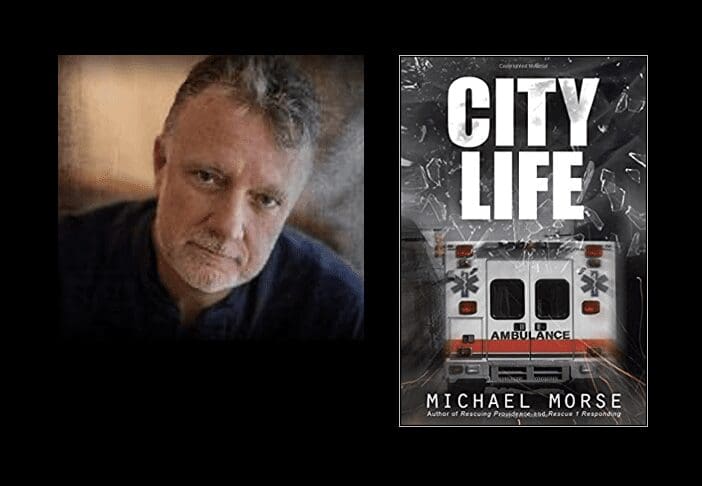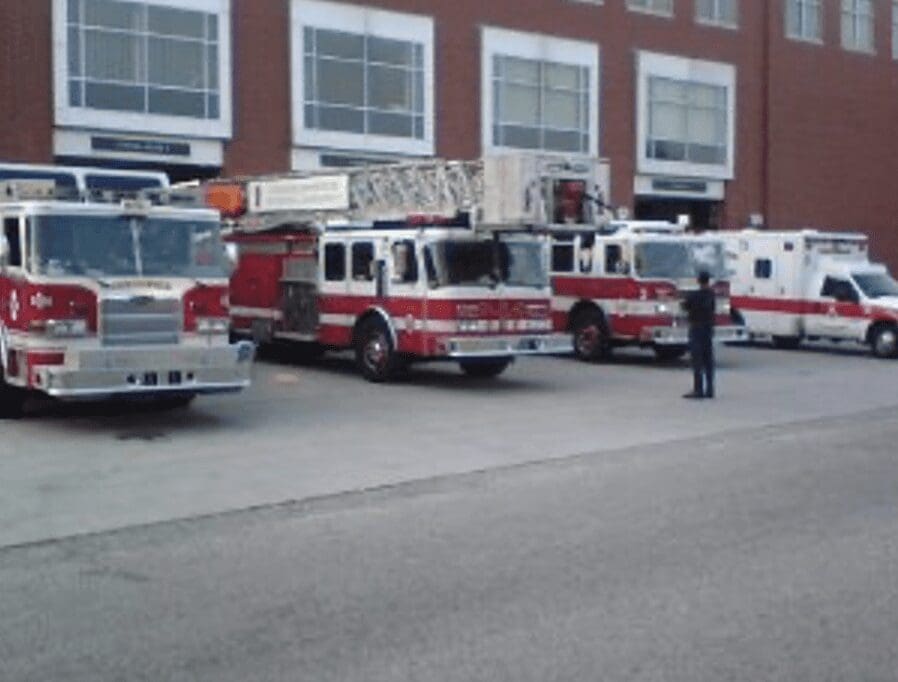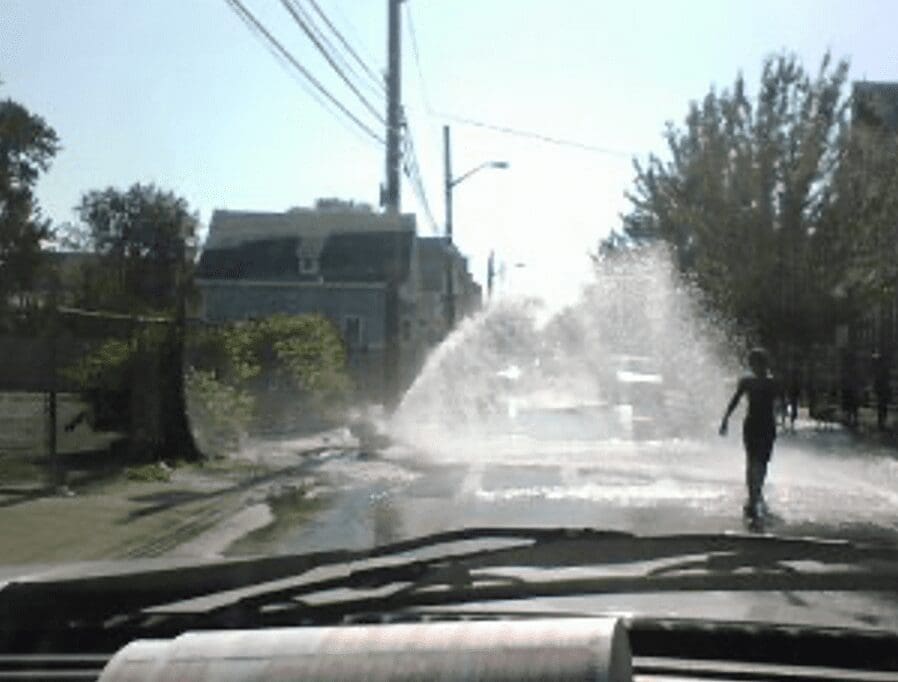Search Posts
Recent Posts
- Outdoors in RI: Help keep recreation areas clean. Invasive Milfoil, trash. 2A update – Jeff Gross July 26, 2024
- Real Estate in RI: Highest-ever sale in Queen’s Grant, EG $1.25M, by Residential Properties July 26, 2024
- Homeless in RI: Gov. Newsom issues Executive Order. Remove California’s encampments. July 26, 2024
- Let the games begin. XXXIII Summer Olympics – John Cardullo July 26, 2024
- GriefSPEAK: What would you do? – Mari Dias Nardolillo July 26, 2024
Categories
Subscribe!
Thanks for subscribing! Please check your email for further instructions.

Read With Us: CITY LIFE – a book by Michael Morse – Chapter 10
by Michael Morse, contributing writer
Atlas Shrugged
Just wondering: How did a nice old lady have a CVA on May 5 in the Dominican Republic, get on a flight to the US of A, get from the airport to her family’s house, but then need to call 911 for a two-mile ride to the emergency room? I asked her family what prompted the emergency; they said she has weakness on her right side. When asked if this was a new development, they gave me a blank stare and said, “She had a stroke on May 5,” as if that explained everything.
Our health care system is in shambles in large part because of these situations. Unable to get quality medical care, including physical and speech therapy, in the Dominican Republic, the family arranged for the non-English-speaking lady to come here, be transported by an emergency vehicle to an emergency room, and be entitled not only to immediate care but all the subsequent follow-up care. All this having never stepped foot in the country until yesterday. I wonder how long we can bear the weight of the world before we collapse.
Gone
Strange how chilly the night had become. A few hours ago the warm night air was full of heat and humidity. I closed the passenger-side window as we sped toward the house where a young woman was reported to be having a seizure. John McGovern was behind the wheel, both of us working our seventeenth hour of a twenty-four.
“I’ve been here before,” he said as we stopped in front of a little one-family house on a quiet street in the city’s Mount Pleasant section.
“Yup, this is the house,” he mumbled to himself. We walked past the trash that had been placed at the curb for pick-up. I noticed what looked like a brand new crib, taken apart, the sides and mattress leaning against a ruined couch, the fabric of the couch ripped, it’s stuffing torn out. I didn’t think the crib would be here long, somebody would snatch it.
Lieutenant Rondeau walked out of the house and gave me an update on the patient’s condition. It didn’t appear to be a seizure, he said. I entered the house; a twenty-two-year-old woman lay on a different couch, her aunt kneeling before her, holding her hand.
“She’s all right,” said the aunt. “Sorry to bother you, I thought she wasn’t breathing.”
We did an evaluation, decided that there was no emergency, and walked out of the house past the discarded crib toward the rescue. John was unusually quiet as we rode back to the station. Halfway there, he told me the story.
“Last week we were there, her baby died on her chest while she was sleeping,” he said in a low voice. I didn’t interrupt, letting him tell the story at his own pace. “I think that was the couch at the curb, all slashed up, and the crib must be the baby’s. We did CPR and got her to Hasbro but it was too late. I think the baby had been gone for a while.” He drove slowly toward home. “Chris ran out of the house holding the baby, doing compressions. I bagged her all the way to the hospital, there was nothing we could do,” he said. I wondered if he believed that or was coping the best he could. He’s got a couple kids of his own.
“Did you see the crib? And the couch? That was strange,” he said, shaking his head.
I agreed. He backed the rescue into the bay and headed upstairs.
Eye Infection
“Eye infection? Her eyes had better be falling out of their sockets, calling 911 at three thirty in the morning for an eye infection. Eye infection . . . Who in their right mind would call 911 at three thirty in the morning for an eye infection? I’ll give her an eye infection. She’ll wish she didn’t have eyes when I get there. Eye infection. Unbelievable!”
“Are you done yet?” asked John as he drove toward the house. He was as tired as I was, only handling it better. It had been a grueling shift; this was our tenth run since five, our third since midnight. We had both worked all day as well.
“Almost. I know,” I said, doing my best crazy lady imitation, “I’ll call 911 because I have an eye infection!”
We pulled up to a dark house on a dark street. I saw a handwritten sign taped to the side of the door under a couple of doorbells that said “Apartment 2.” I rang the bell closest to the sign, then read the rest of the note.
“Over There!” with an arrow pointing to the next door. Oops. Apparently we weren’t the only late-night visitors here.
We stood in front of apartment 2. I rang the bell. A middle-aged lady answered, dressed in flannel pajamas, smoking a cigarette, and holding a crate of medications. She had oozing sores all over her face.
“What happened to your face?” I asked.
“I pick my skin, it got all infected. I picked this one,” she pulled back a bloody scab over her left eye, “the pus ran into my eye.”
Just when I thought I had seen everything.
How About a Salad
I was working with Jeff the other night and spent a lot of our shift looking for Kevin. You may remember him from previous posts—he’s the guy that drinks himself into unconsciousness, then pops up when we least expect it and asks trivia questions. “Whose the guy . . .”
Jeff had a bag of clothes to give him. We do a lot of complaining about the drunks and abuse of the 911 system, but some of us actually care about the welfare of our most annoying patients. They truly cannot take care of themselves. What promise they once had has been drowned by years of alcohol abuse. Is there redemption? I honestly hope so.
Al and Jeff, partners on Rescue 1, D group, have not given up hope. Neither is timid when it comes to expressing an opinion or dealing with combative patients, but there is a side to them that shows through their rough exterior whether they like to let it out or not. I’ve noticed that most Providence firefighters are like that—when you least expect it, at times from the least likely person, an act of kindness will appear that reaffirms my faith in the goodness of humanity. This is just the most recent example.
One of our regular drunks was passed out in the Wendy’s parking lot. Somebody called 911, Al and Jeff responded. The guy was only a “little” intoxicated, probably enough to knock most of us senseless. He asked Jeff for some money. “Why don’t I buy you a burger instead,” Jeff said. “That way you won’t buy another bottle of vodka.” The drunk thought about it for a minute and said, “No thanks. There’s a lot of saturated fat in hamburg, and it’s not real meat. Who knows what kind of chemicals are in those things.”
“Well what do you want?” Jeff asked.
“How about a salad?”
They got the drunk his salad and went back in service.
Beats War

A bad day golfing is better than a good day at war. I hope Bob’s better with his weapons than he is with his golf clubs. We pretty much stunk up the Exeter Country Club but had a ball doing it.
Missed Chance
We sat next to each other on the curb in front of his grandfather’s house. He was about ten years old, barely holding back a flood of tears. His sister wasn’t able to control her emotions, her tears flowed freely.
“He was fine last night,” she said. “How could he die?”
We got the call at 0658 for a man not breathing. Engine 13 led the way down the tree-lined street near the Cranston line; we followed a safe distance behind. In the distance, past the engine I saw frantic motion in front of a nice two-story Cape. As we approached I saw the kids waving us in.
The boy had gone to wake his grandfather as he does every day for a ride to school.
“I knew something was wrong when I saw his eyes open and not blinking,” he said between sobs. “He goes to work every day. He can’t be gone.”
He sat next to me for a while, rocking gently, side to side. He pulled his knees toward his chest and hugged them. All I wanted to do was put my arm around his shoulders, give him some comfort, maybe make his pain more bearable. Instead I looked toward Broad Street for the police sergeant to come and take over. I wish I had taken the chance. I don’t know if I was afraid of scaring him, or hurting myself if he were to stiffen and walk away. An uncomfortable silence lasted for about a minute. Then he got up and walked into the house. A few minutes later, his sister followed.
The police arrived at 0715. I told them the time of death and went home. Days later I still feel as though I failed. I had a chance to help those kids but for whatever reason chose not to. I’m sure there will be more death and heartache to deal with. Maybe next time I won’t be as afraid.
Drowning
For nine years I have walked through these sliding glass doors. Nothing much had changed in the three years since I had last entered here. The first floor was still empty. The elevators still painfully slow.
A lady on the fourth floor was in congestive heart failure. I had received her vital signs over the radio from Elliot, the lieutenant from Engine 12. Not good: blood pressure 212/120, pulsox 79 percent, rapid heart rate. Her lungs were filling with fluid, making each breath she took harder and harder. I’ve heard that it feels like drowning to the person experiencing the symptoms. The fourth floor is where patients suffering from dementia and Alzheimer’s disease live. I imagine the patient had no idea what was going on; she could think she was drowning in the ocean for all we knew.
Finally the elevator stopped on the first floor. Me and Vicro, my new partner—Renato has flown the coup (that’s another story)—rolled the stretcher in and hit the up button. The doors opened on the fourth floor, home for the twenty or so residents here. The place is immaculate, floors shined, flowers in vases here and there, and a birdcage on a table in the foyer. The birds were sleeping. So were most people. It was two thirty in the morning.
I entered the room. The patient lay in her bed, an unknowing look of worry on her face. The guys from Engine 12 had her on oxygen and ready to be transferred to my stretcher. Her name was Eileen. I told her what was happening as we moved her over. Even though she was drowning in her own fluid, I think she relaxed a little, knowing we were there to help. We packed up our stuff, med bags, defibrillator, and oxygen tank and headed for the elevator. The nurse on the floor followed us down the corridor.
“Bye, Eileen, see you when you get back,” she said, insincerity evident in her tone. She looked me in the eye and said conspiratorially, “If you get back,” and smiled.
My mother spent her last nine years of her life here, dying in one of these rooms the week before Christmas. I’m not proud to say I imagined the nurse on the stretcher, full of tubes and drowning in her own sarcasm.
We got Eileen to the hospital after treating her in front of the nursing home for about fifteen minutes. Vicro established an IV, we gave her nitro, aspirin, 40 mg of Lasix, and an albuterol treatment. Her pulsox was 93 percent with a blood pressure of 170/100 when we left.
She’ll be back.
Moment of Silence

May the spirit of the nine firefighters from Charleston, South Carolina, live on forever . . .
Washington Street, moment of silence in honor of the deceased, 19 June 07, 1900 hours.
Peanuts
Traffic was slow, a combination of construction projects, a few accidents, and the lethargy that a beautiful day brings on. We needed to get from South Providence over to Mount Pleasant, a trip of about ten miles, as quickly as possible. An eleven-month-old infant was waiting. The report said he was having trouble breathing and had hives on his face, chest, and back. Vicro hit the gas, forcing cars out of our way with the lights and sirens, clearing a path as best he could. An infant having an allergic reaction is potentially fatal, and there was no way a baby was going to die on my watch. All of our rescues were tied up on other calls and two or three out-of-town rescues were covering the runs that we couldn’t get to. Though it was on the opposite end of the city, this one was ours.
Joe from Engine 6 gave me an update when we arrived in front of the house, telling me the baby’s face was swelling and the hives were traveling down his body. I climbed into the rescue and got things ready, drawing up .1 mg of epinephrine, 1/1000 into a 3 ml syringe, hooked a pediatric nasal cannula up to the O2 port, and prepared the stretcher. Vicro carried the baby into the truck, the mother and sister followed. Hives had appeared all over his body and slight wheezing had begun. I told the mom what I was doing, prepared the site on the baby’s thigh, and injected the epi. Vicro got in front and drove toward Hasbro.
Peanut butter crackers were the culprit. Aton had never before tried peanut butter. I hope he never does again. His eyes, which had puffed up, started to return to normal and the redness and swelling on his face diminished. The wheezing disappeared as well. The mom was relieved, the sister too, but most of all the guy in charge of the rescue. We took him to Hasbro for an evaluation and got ready for the next call.
Choking
I’ve got an eleven-month-old infant properly restrained in the captain’s seat, looking at me, an earring lodged in her throat, a hysterical mother insisting on holding her baby in her arms during transport, a ten-minute ride to Hasbro Children’s Hospital. Every now and then the baby holds her breath and looks shocked, then breathes again. John, my driver, is doing his best to beat the rush hour traffic on Route 10. A moron refuses to yield the right of way, pulls next to the rescue and flips off John, still refuses to get out of the way. Meanwhile I’m on the phone with the doctor from Hasbro explaining that my patient has a partially obstructed airway, a sharp object lodged in her throat, and occasional difficulty breathing. The mother is screaming at me to do something, telling John to go faster, while the doctor wants to know the child’s vital signs, like I have time for that. I’m preparing the ET kit just in case even though I’ve never intubated a child, the moron is now following us and making a real ass of himself, the baby’s face turns red, her eyes tear up, she coughs, then closes her eyes and doesn’t make a sound. I feel the truck turn, then feel the familiar bumps of the highway off ramp and know the hospital is seconds away. The baby burps, smiles, and starts to breathe normally. The truck backs into the bay at Hasbro.
A day later I get a call from the EMS chief wanting an explanation concerning our behavior against a citizen who filed a formal complaint against us for harassing him on the highway. The whole incident will be dropped if we just “tell the truth.”
I GOT YOUR TRUTH, RIGHT HERE!
Summer Fun

Trooper
A Rhode Island state trooper has spent the last ten days at Rhode Island Hospital recovering from a life-threatening blow to the face and subsequent fall to the back of his head. Our guys responded, did their job, IV, O2, EKG, immobilization, and transport, in incredible time. The doctors at the ER credited Rescue 4 and Engine 3 with saving the trooper’s life.
His pupils were blown, blood pouring from the ears, nose, and mouth, when we arrived. He was given last rites and organ donation was being considered. Luckily our rescue was available on a Saturday night at closing time. We scooped him up and, with help from the firefighters on Engine 3, did our thing while en route to the trauma room, five minutes away.
The trooper is twenty-five and in great shape, which helps. The state cops I run into can’t thank us enough. The trooper’s family treats us like miracle workers. It is very humbling, but greatly appreciated.
Today I visited the intensive care unit with the guy in charge of the rescue that night. The trooper’s mother, father, and brother were there and we talked for a while. He is going to be extubated tomorrow, is responding to questions by squeezing hands, and opens his eyes. They are hopeful for a full recovery. Extensive therapy is in his future but it looks like he is going to make it.
All the assbags we save, all the nitwits we take to the hospital, all the nonsense, is forgotten on days like this. The family plans on throwing a huge party. I can’t wait.
Cashed Out
The firefighters did their job, the patients chose to ignore their advice. Cervical collars are applied to any victim of an MVA when they complain of neck and/or back pain. The driver and front seat passenger of a car that was struck while stopped at a stop sign said they were hurt, and they were treated accordingly.
When Rescue 1 arrived, about ten minutes after Engine 12, the “injured” were walking around the scene. One of them actually went into a local convenience store to buy some cigarettes, both wearing the bulky white collars that are designed to keep the neck immobilized and prevent further spinal cord damage. We rounded them up, put them on spine boards, immobilized them the rest of the way, and headed out toward Rhode Island Hospital.
The female victim talked on the phone for a bit while I gathered her friend’s information. She was excited, talked about the big payday when she sued the morons who crashed into her. She could barely contain herself she was so happy. Her friend was a little more subdued, just answered my questions. We rode toward the hospital, me writing the facts of the accident on the state report, them talking about who they were going to sue.
As we approached the ramp to the ER her phone rang one more time. They were towing her car! She was furious! How dare they! The car wasn’t insured or registered but hey, that’s not their problem. Some idiot hit them! Can you believe this bullshit!
I couldn’t stop laughing as we carried them in.
___
Read past Chapters, 1-9, here:
___

Michael Morse, [email protected], a monthly contributor is a retired Captain with the Providence Fire Department
Michael Morse spent 23 years as a firefighter/EMT with the Providence Fire Department before retiring in 2013 as Captain, Rescue Co. 5. He is an author of several books, most offering fellow firefighter/EMTs and the general population alike a poignant glimpse into one person’s journey through life, work and hope for the future. He is a Warwick resident.

